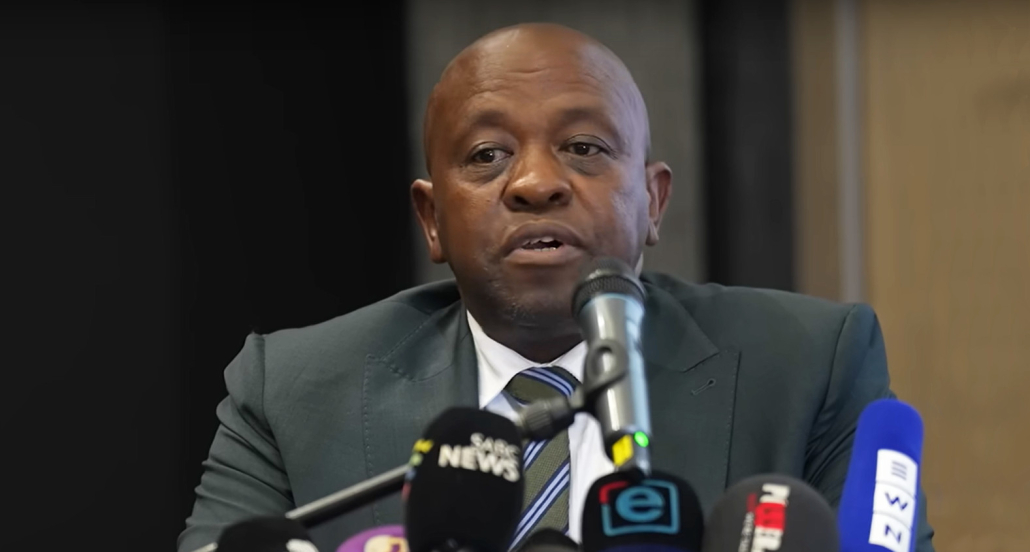UPDATE: The commission announced on 26 August that it will not, after all, be able to commence hearings on 1 September. Delays in the procurement of critical infrastructure, the commission further revealed, is the cause. Two senior justice department officials have reportedly been suspended because of this.
The Judicial Commission of Inquiry into criminality, political interference, and corruption in the Criminal Justice System – or the Madlanga commission, informally named after its chairperson, retired Constitutional Court justice Mbuyiseli Madlanga – will conduct its first hearing on 1 September.
The commission will be based in Pretoria at the Brigitte Mabandla Justice College, a public sector law school in the central city, not far from the Union Buildings. The venue has been made available at no cost to the commission.
“The Department of Justice and Constitutional Development, which is assisting with procuring the Commission’s requirements, is hard at work to ensure that hearings will commence as scheduled. Likewise, the Department of Public Works and Infrastructure is attending to alterations that will make the venue fit for purpose,” said the commission.
The team will be working to a strict time frame.
“The timelines, I must say, do appear to be quite tight,” said Madlanga in a media briefing some weeks back. “Whether or not we will be able to finalise our work within that period, standing here, all I will say is we will do our work with the terms of reference in mind.”
The terms of reference stipulate the deadlines to which the commission must adhere. An interim report is expected within three months and a final report after six months.
Legal experts have expressed doubt that the commission will complete its work within the six-month period.
“They should be winding up their work at the end of this year, which I don’t think is feasible,” said Adv Paul Hoffman. “Depending on the interpretation that the commission gives to its mandate and the terms of reference that it has been given, it is possible that the commission will decide that it’s not going to get involved in the nitty-gritty of hundreds of dockets and who did what to who in the detail of General Mkhwanazi’s complaints that sparked the appointment of this commission.”
The commission may view its mandate in a way that enables it to look at the systemic and operational aspects of the matter, Hoffman added. “There is plenty of work to be done because as long ago as 2011, the Constitutional Court ordered Parliament to amend legislation that had been passed bringing the Hawks onto the statute book in order to create a body outside executive control to deal effectively with corruption.”
Criminality and organised crime
President Cyril Ramaphosa established the “Judicial Commission of Inquiry into criminality, political interference, and corruption in the Criminal Justice System arising from the specific allegations made public by [KwaZulu-Natal police commissioner] Lieutenant-General Nhlanhla Mkhwanazi on 6 July 2025, with the terms of reference in the Schedule attached hereto”.
Madlanga will preside, with advocates Sesi Baloyi and Sandile Khumalo assisting. Respected academic and higher education expert Dr Nolitha Vukuza is the commission’s secretary and Jeremy Michaels is the spokesperson. Forensic auditor Dr Peter Goss is the chief investigator. Chief evidence leader is Adv Terry Motau, assisted by Adv Matthew Chaskalson, Adv Mahlape Sello, Adv Adila Hassim (a former CW board member), Adv Lee Segeels-Ncube, Adv Ofentse Mohlasedi, and Adv Thabang Pooe.
Ramaphosa gazetted the terms of reference on 23 July 2025.
The commission is mandated to inquire into Mkhwanazi’s allegations that a sophisticated criminal syndicate has infiltrated law enforcement and intelligence structures in South Africa, including the South African Police Service (Saps), the National Prosecuting Authority, the judiciary, various metro police departments, and the Department of Correctional Services, among others.
Mkhwanazi also alleged that Police Minister Senzo Mchunu interfered with sensitive police investigations and colluded with business people, including a murder accused, to disband the province’s Political Killings Task Team. He further alleged that a police investigation by the task team in Gauteng unmasked a syndicate controlled by a drug cartel, which involves politicians, law enforcement officials from the Saps, metro police, and correctional services, prosecutors and the judiciary, and business people.
“These allegations, if proven true, threaten to undermine the confidence of South Africans in the ability of the South African Police Service to protect them and to effectively fight crime and corruption,” said Ramaphosa in an address to the nation on 13 July.

